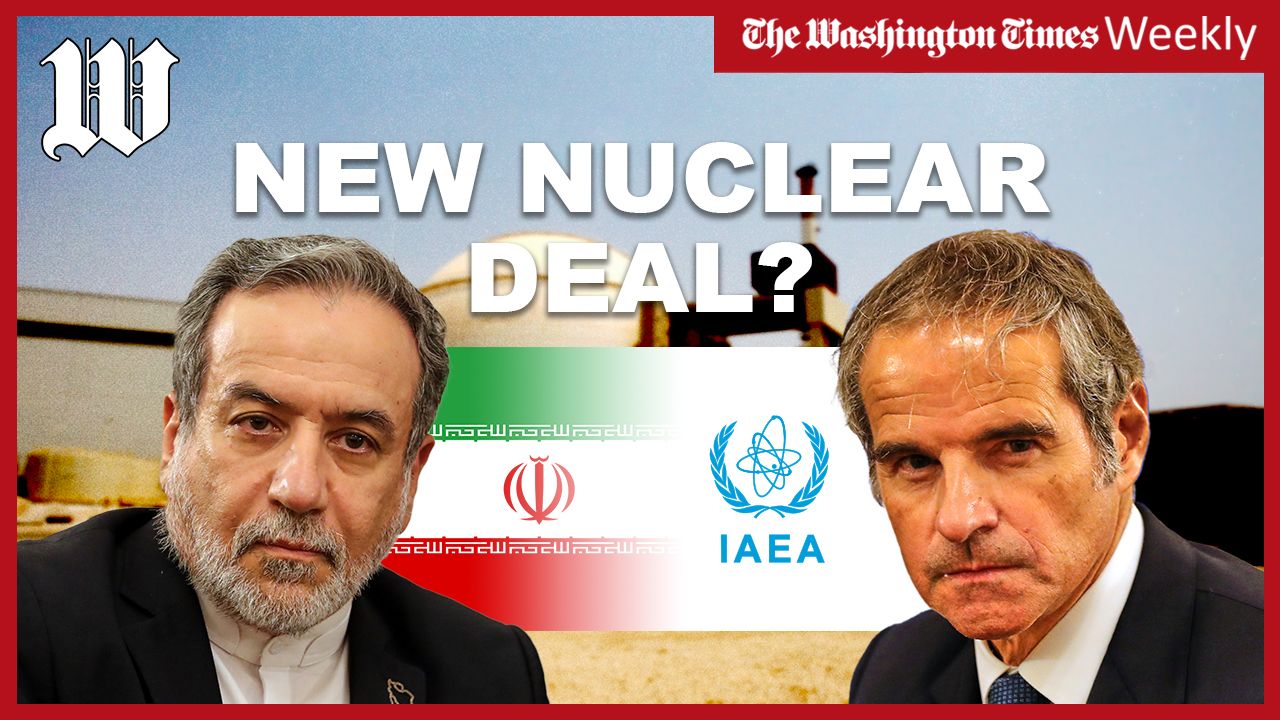
I’m George Gerbo, and welcome to Washington Times Weekly, where we get a chance to sit down with our reporters and talk about their coverage of the latest news and events.
And to do so this week is Washington Times digital reporter, Vaughn Cockayne.
[GERBO] A lot of foreign affairs topics to dive into that you cover pretty extensively for us here at The Times. We’ll start with Iran, reaching an agreement with the International Atomic Energy Agency, the IAEA, on resuming inspections at uranium enrichment facilities. Those facilities in Iran have suffered a lot of bombardments between Israeli bombs as well as the United States attack that came after Iran blew through the previous deadline that President Trump had issued for a deal on a nuclear agreement. Are we any closer now that Iran is going to let inspectors back into the country to look at their sites and to review their uranium sites? Are we any closer? Does that help portend, perhaps, a nuclear deal on the horizon?
[COCKAYNE] Well, it’s really unclear. The details of the agreement between Iran and the Atomic Energy Association, it’s really unclear at this moment. The only thing we’re really clear on are the conditions in that Iran has said pretty explicitly that if Iran is attacked or if the snapback sanctions come down at the end of the 30-day timeline, then all nuclear inspections will be off. I’ve seen some analysis that have said that the inspections won’t happen before the 30-day timeline expires before snapback sanctions are supposed to come back down.
So it’s really unclear whether or not it will really create more — it will open more doors for a deal. It’s really unclear at this time, especially considering there are two other demands from E3 nations that Iran has failed to meet, namely renegotiating with the United States, reopening negotiations, and accounting for their nuclear stockpiles, their uranium stockpiles, which they reported earlier this week that they’re unable to do possibly because of the rubble and the damage done to the three main uranium enrichment sites.
[GERBO] Let’s stay in the region with Israel and their recent extremely provocative attack on Hamas officials, but those Hamas officials were in Qatar. And that’s angered both the Qataris and the United States, who it’s now put the U.S. in a precarious position as it was using Qatar as what it calls an ally to help broker some accords and agreements. Qatar, in the past, has been there when the U.S. negotiated how it was going to withdraw —albeit chaotically — from Afghanistan a few years ago, and now the Qataris are still in this mediator-type position. And so Israel attacks what they believe are senior Hamas leaders in Qatar. Hamas says that none of their senior leaders were killed, but it still represents a pretty dramatic escalation of tensions in this Israel-Hamas war that’s been going on now for some time.
[COCKAYNE] Qatar, as you mentioned, enjoyed a kind of immunity from strikes, and it’s enjoyed a kind of mediator status between the United States, Israel, and Hamas…
Watch the video to see the full conversation.
Read more from Vaughn Cockayne
See more from Washington Times Weekly















